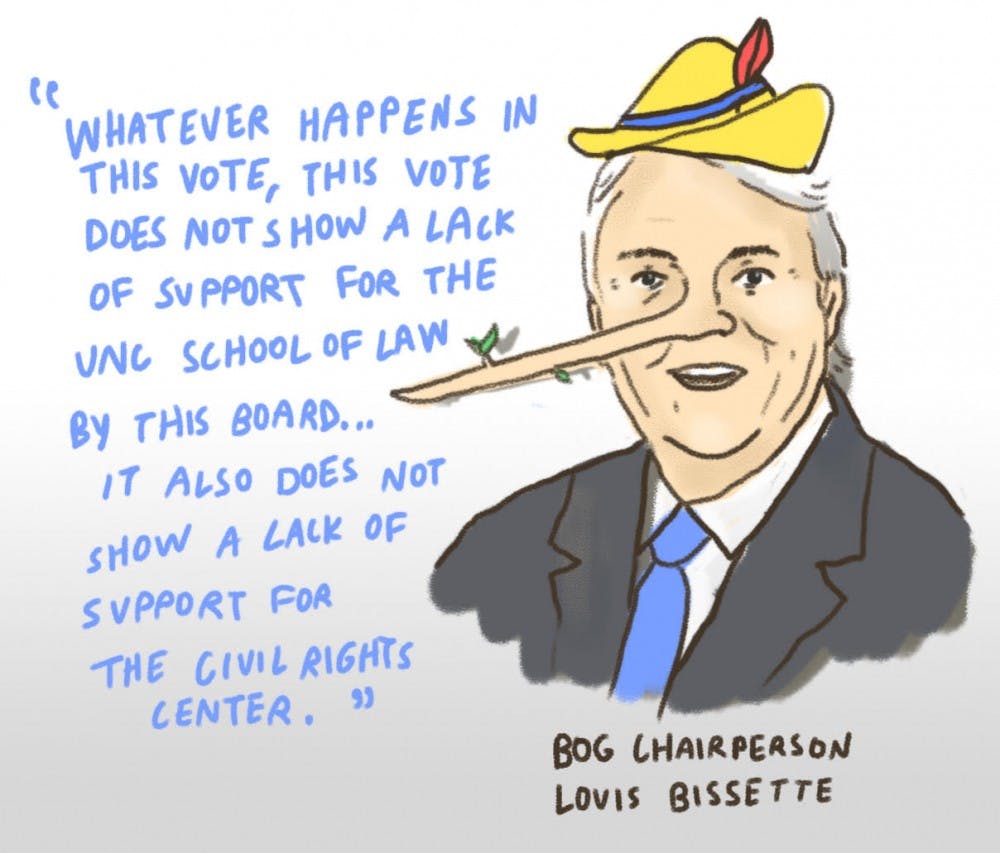The Board of Governors’ latest strike on marginalized groups at UNC and around North Carolina comes in the form of its newly approved litigation ban on the University’s Center for Civil Rights.
The Board voted last Friday to go through with a proposal that would effectively end the Center for Civil Rights' tenure on campus and as a branch of the UNC School of Law system. This decision is widely representative of the paradoxes created by the Board of Governors and legislative bodies that govern UNC.
The board sees that this dissonance is confusing, harmful and embarrassing to the student body, UNC system and state governance as a whole.
In Friday’s session, Chairperson Louis Bissette stated, “Whatever happens in this vote, this vote does not show a lack of support for the UNC School of Law by this board, (and) it also does not show a lack of support for the Civil Rights Center.”
Mark Dorosin, managing attorney for the center, was quick to point out Bissette’s bizarre argument. Immediately following the vote, Dorosin shouted, “I don’t understand how you can say that ... you’re supporting the Center for Civil Rights when you just voted to shut it down,” before Bissette threatened to remove him from the meeting.
Indeed, Chairperson Bissette’s statement adds to the long list of paradoxes and false equivalencies the University has delivered in response to recent civil rights issues on campus. For example, due a law prohibiting on-campus action regarding Silent Sam, our UNC administration prioritizes “safety on the campus” yet distresses students continuing to prop painful reminders of slavery.
But no example is more paradoxical than the BOG’s decision on the center. UNC declares itself of the public, for the public — yet our Board of Governors revokes the ability of the the University to advocate for our state’s most vulnerable residents. Now is the time to call attention to this ludicrous disparity between what our campus wants and the rules that state officials declare we follow.
Recently, the Campus Y has publicized a boycott against several on-campus businesses in an effort to elicit a more appropriate and actionable response from Chancellor Folt and the rest of the administration. The boycott is meant to seize the administration’s attention by hurting University revenues.
While protests raise awareness and galvanize groups to action, letters and phone calls to elected representatives can serve as indicators of a community’s frustration and can even push policymakers to reconsider their positions.




